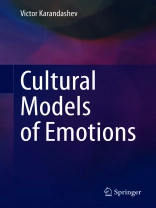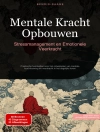This book provides a multidisciplinary overview of cultural models of emotions, with particular focus on how cultural parameters of societies affect the emotional life of people in different cultural contexts. Going beyond traditional dichotomy of West-East comparison and related parameters of culture, such as individualism-collectivism and power distance, it also examines many other cultural dimensions that have received less attention in mainstream research.
Among the topics covered:
- Basic emotional processes in cultural contexts
- Cultural complexity of emotions
- Survival and self-expression cultural values
- Facial expressiveness of emotion across cultures
Cultural Models of Emotion is a comprehensive review of international perspectives on cross-cultural exploration of emotions, and will be a useful resource for researchers in anthropology, sociology, psychology, and communication studies.
Mục lục
1. Introduction.- 2. Cultural parameters and their influence on emotions and relationships.- 3. Basic emotional processes in cultural contexts.- 4. Cultural models of emotions in cultural contexts.- 5. Cultural models of emotional experience.- 6. Cultural models based on expression of emotions.- Conclusion.
Giới thiệu về tác giả
Dr. Victor Karandashev is Professor of Psychology at Aquinas College, Grand Rapids, Michigan. He is a scholar with extensive international and cross-cultural experience and interests and has conducted research on international psychology in several European countries, including universities in Norway, Sweden, Germany, Switzerland, and the UK. He was a visiting professor and a Fulbright Scholar in the U.S.A, and has presented his work related to international and cross-cultural psychology at many conferences. He co-edited three volumes of Teaching Psychology around the World (2007, 2009, 2012). His major area of research interest is the study of love, a topic about which he has published several articles, chapters, and monographs. His recent books Romantic Love in Cultural Contexts (2017) and Cross-Cultural Perspectives on the Experience and Expression of Love (2019) are among the most distinguished interdisciplinary contributions to the field.












